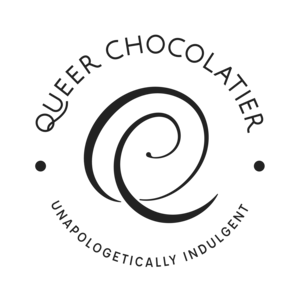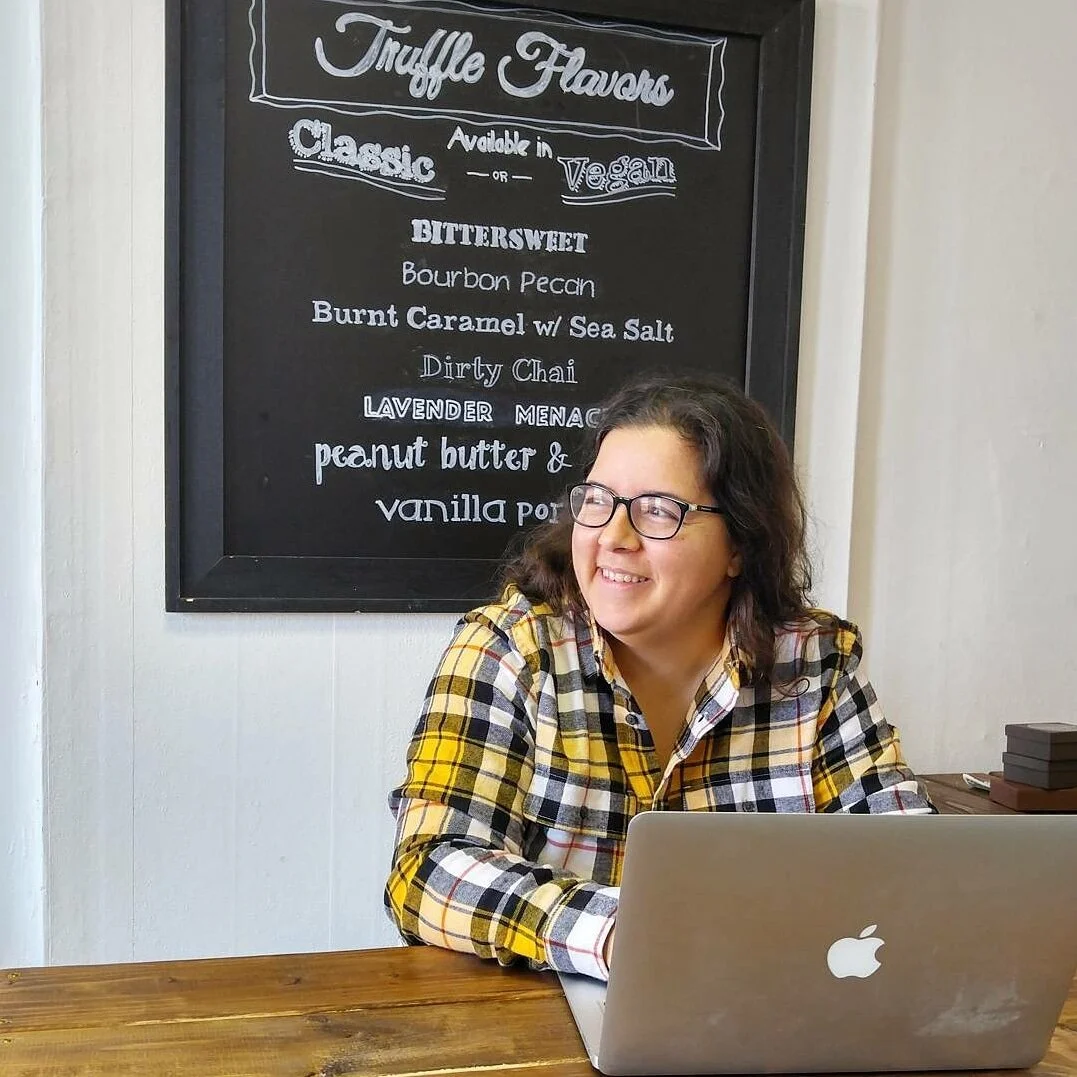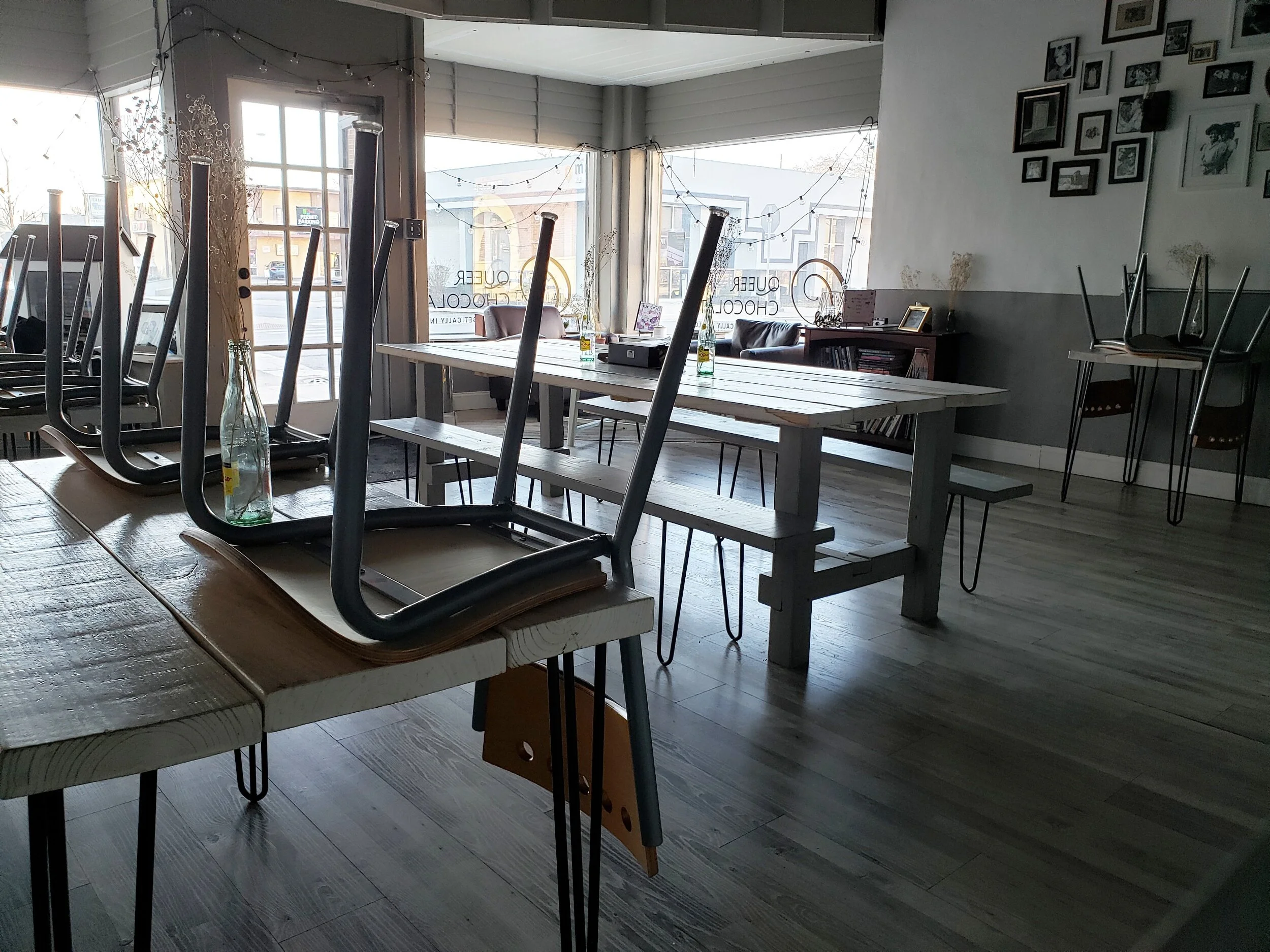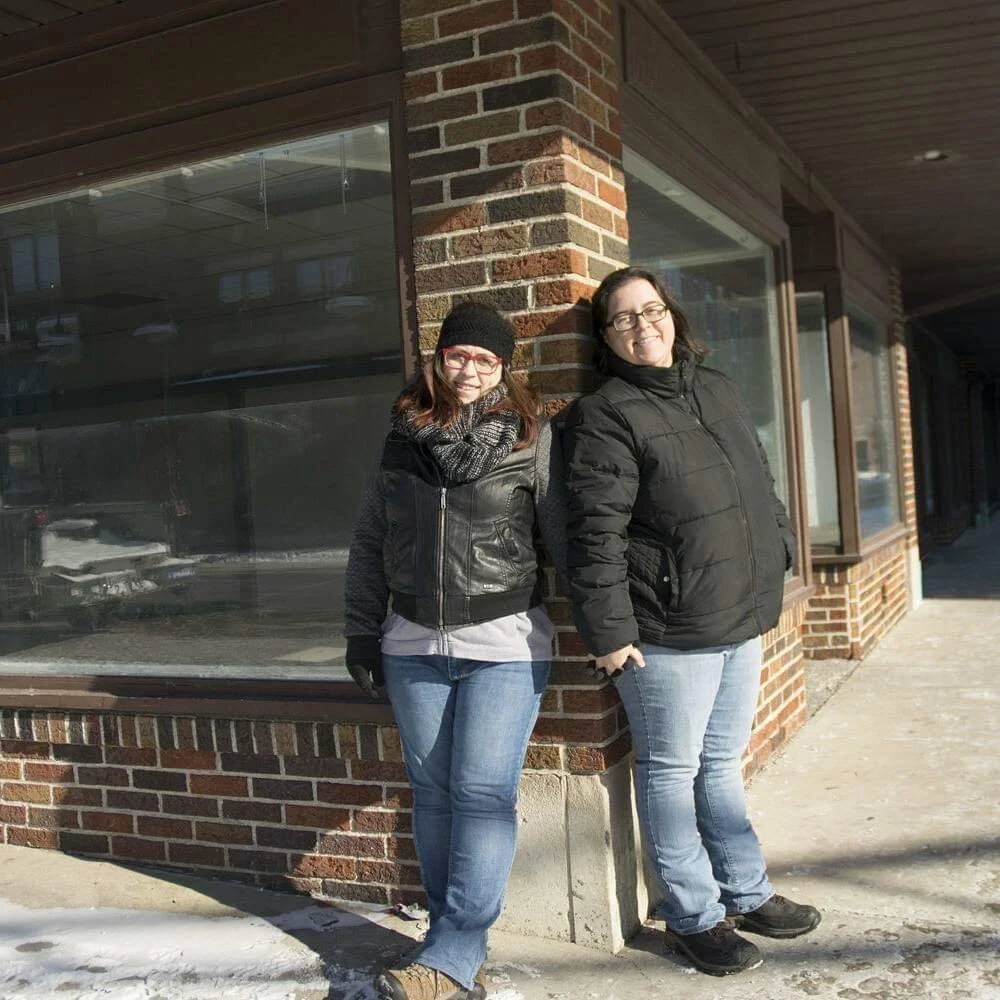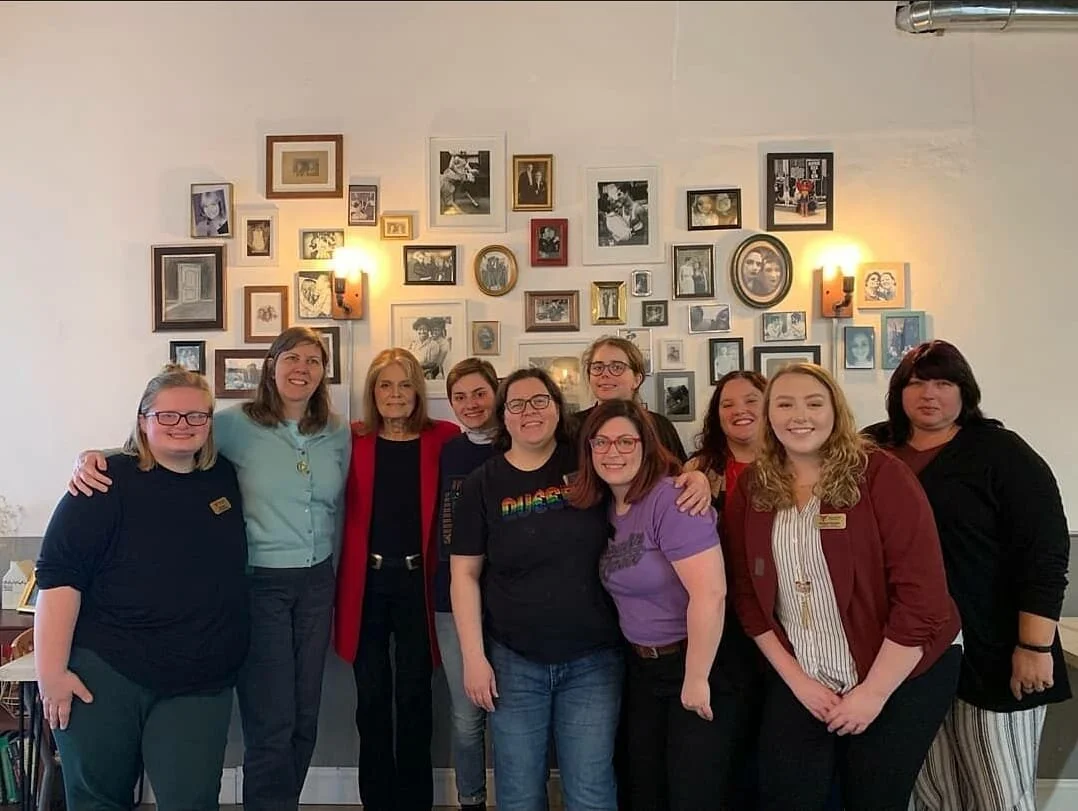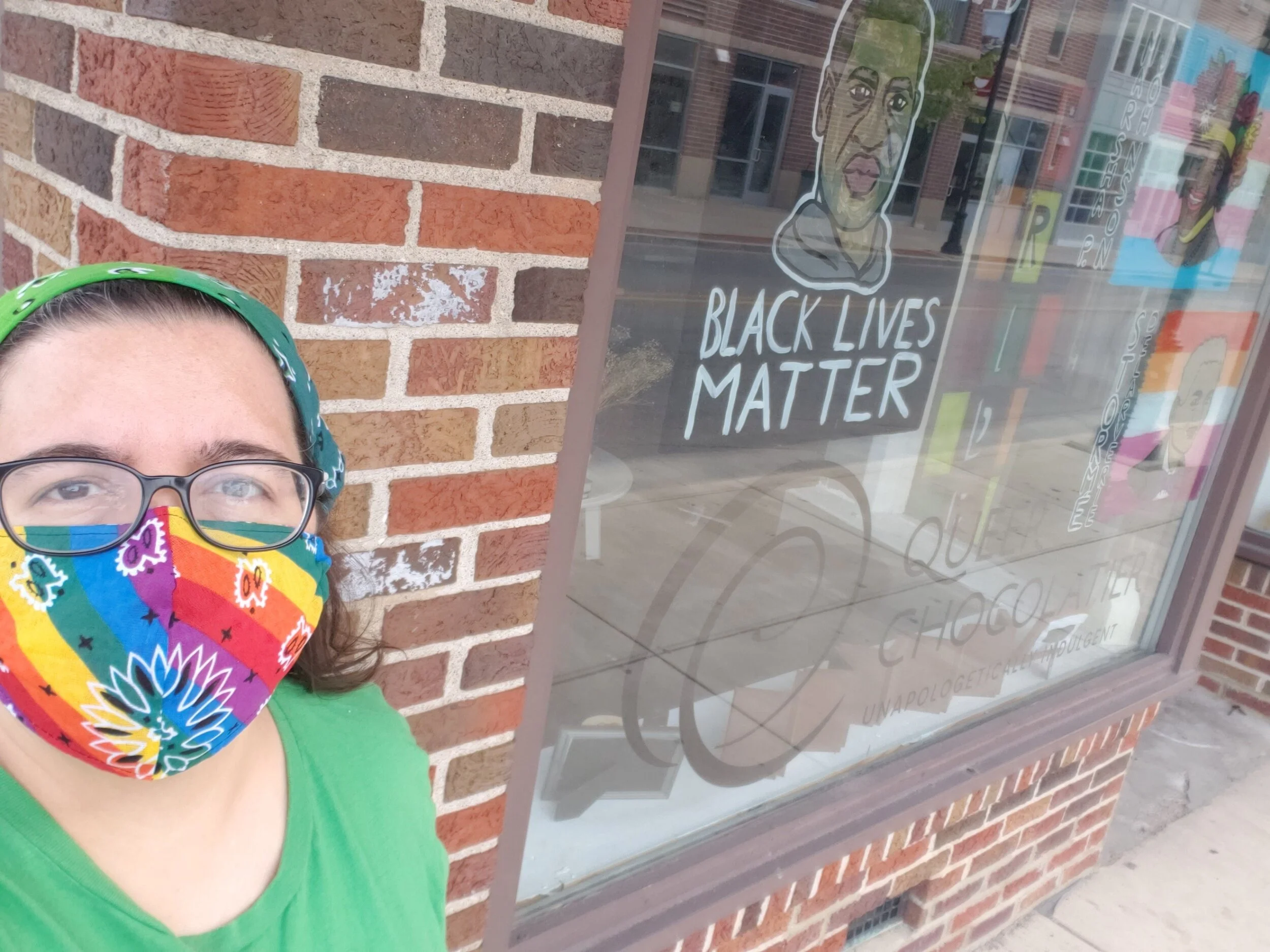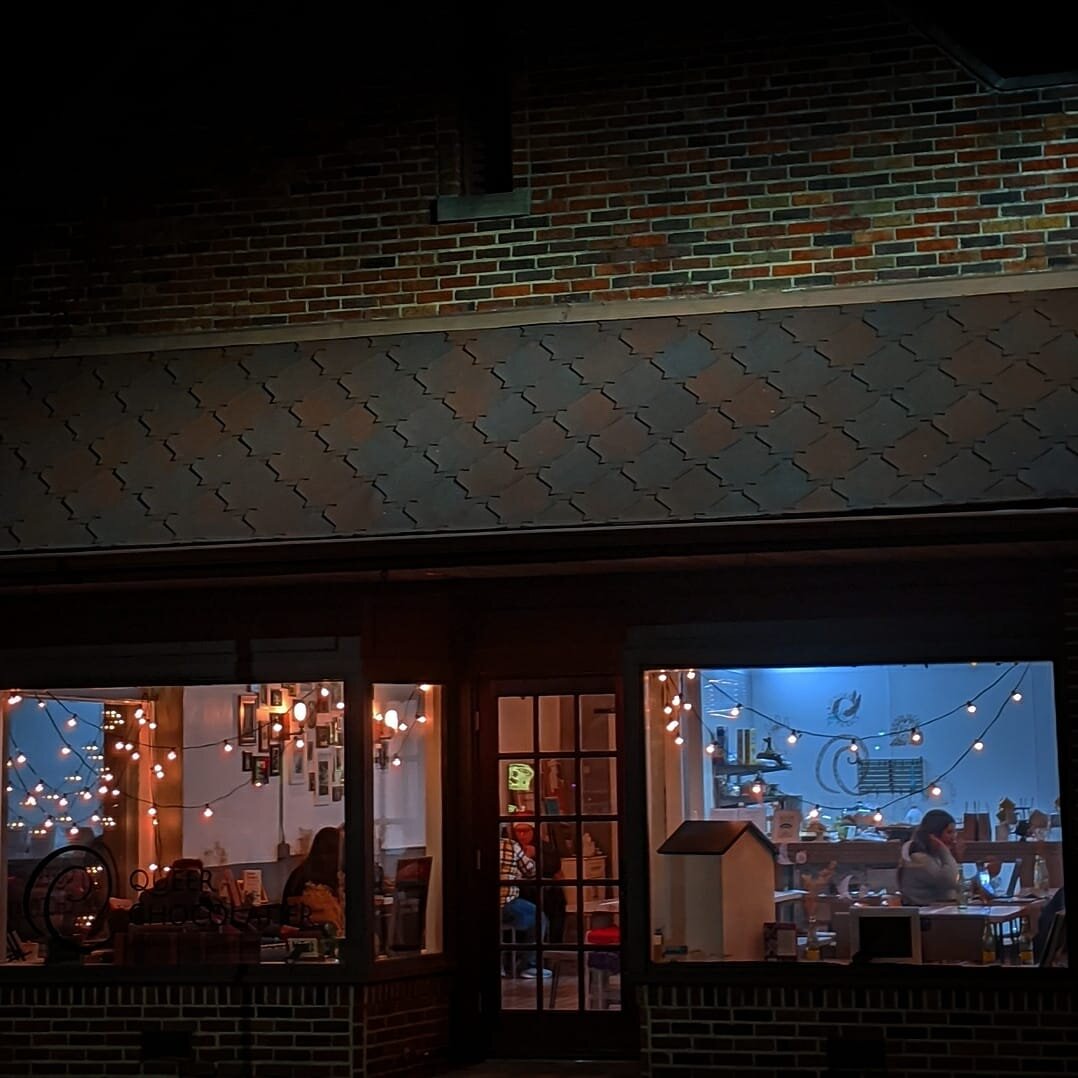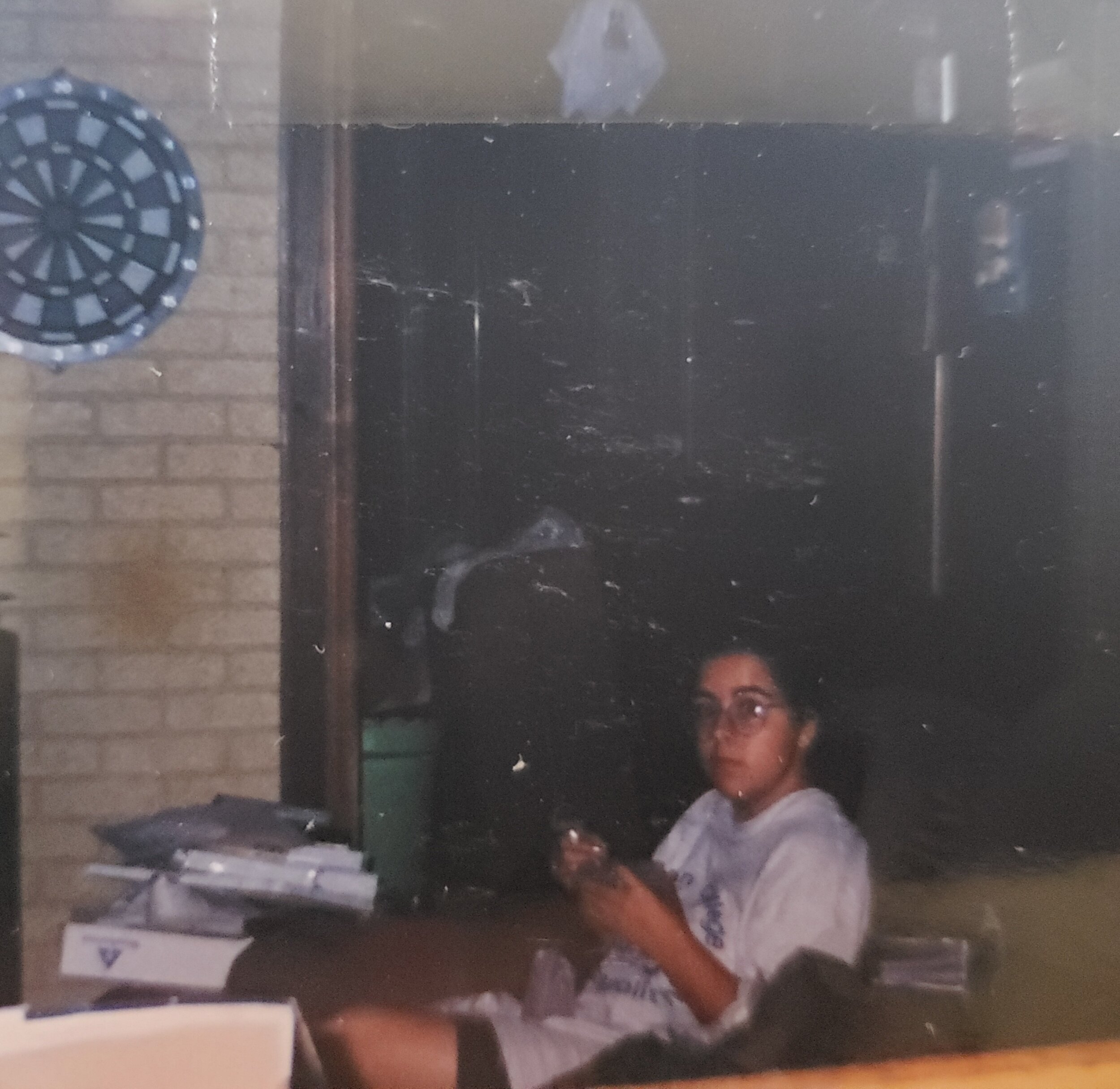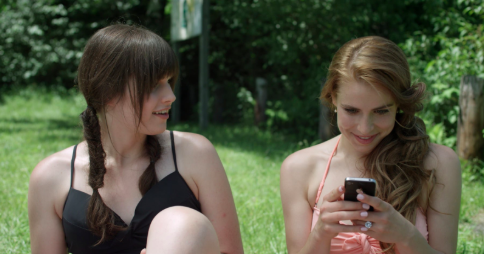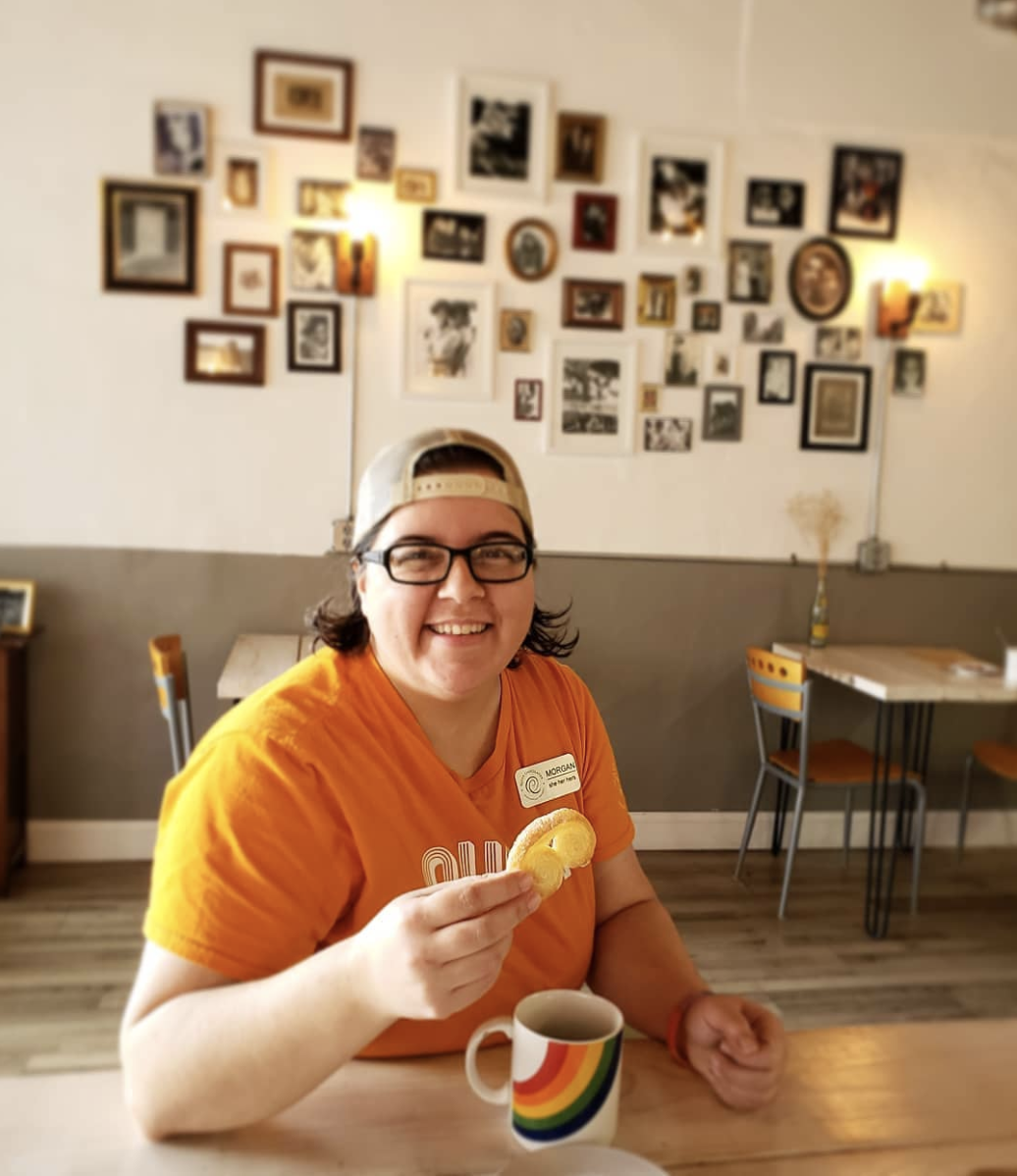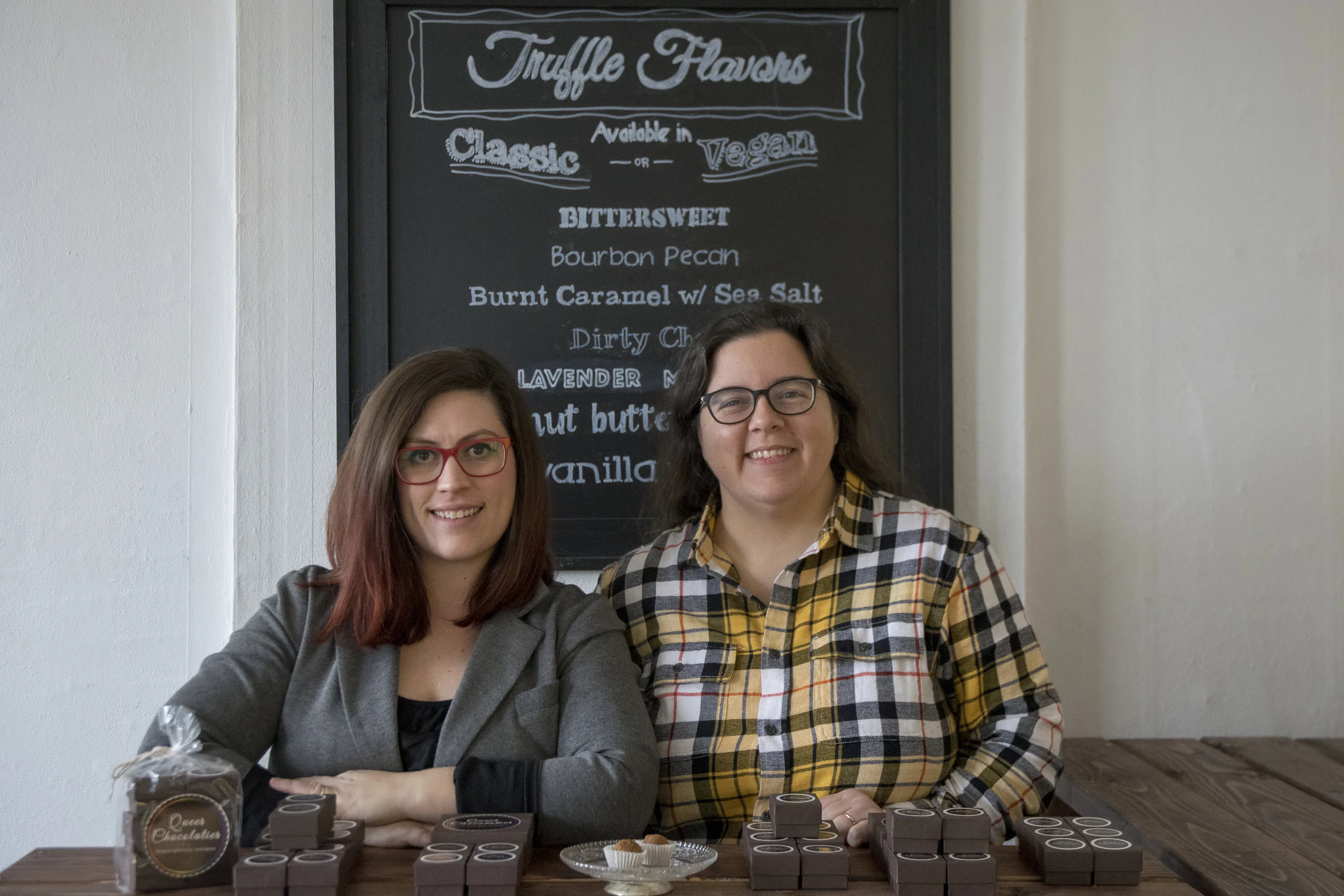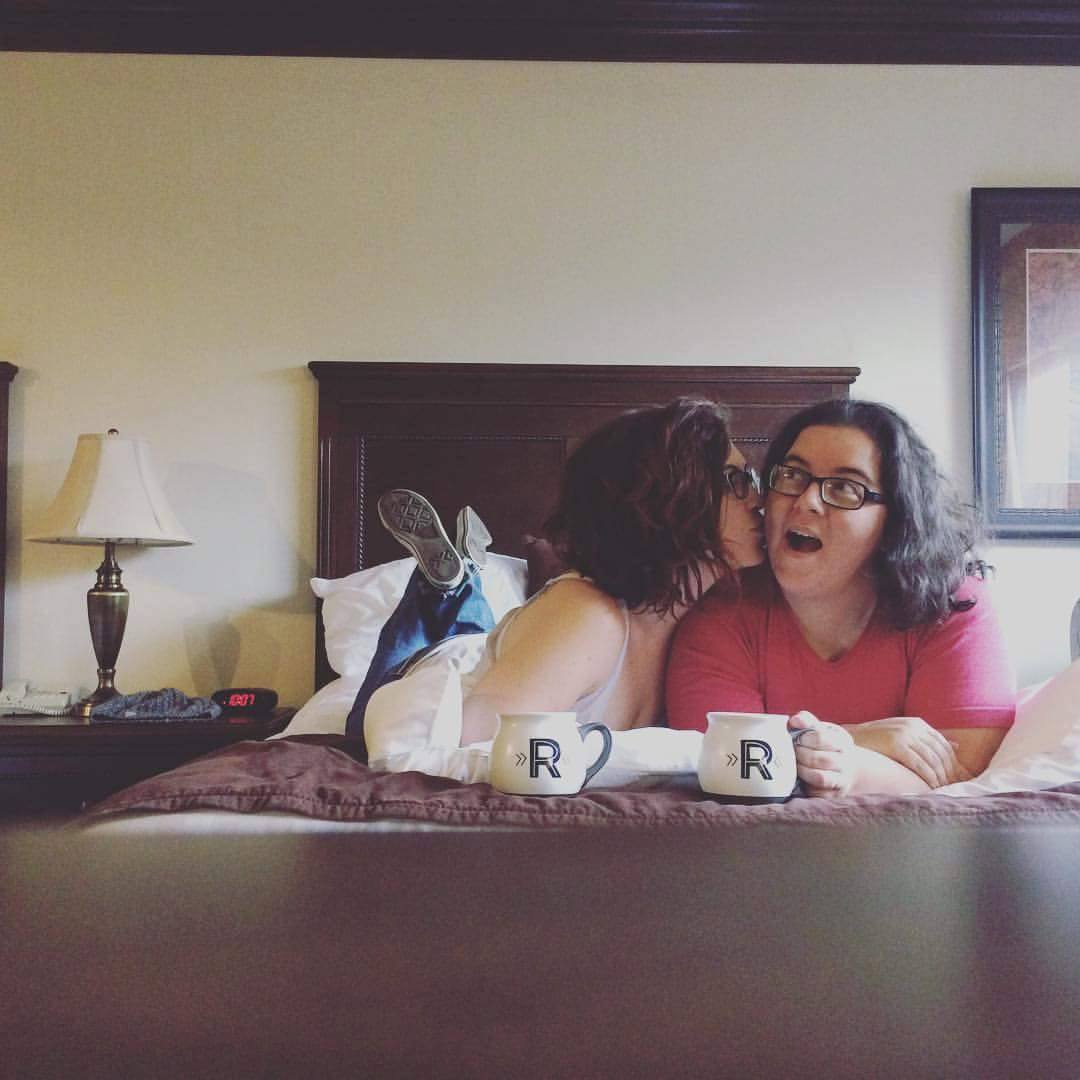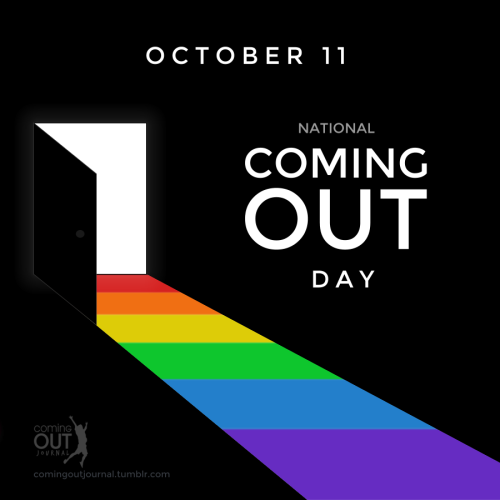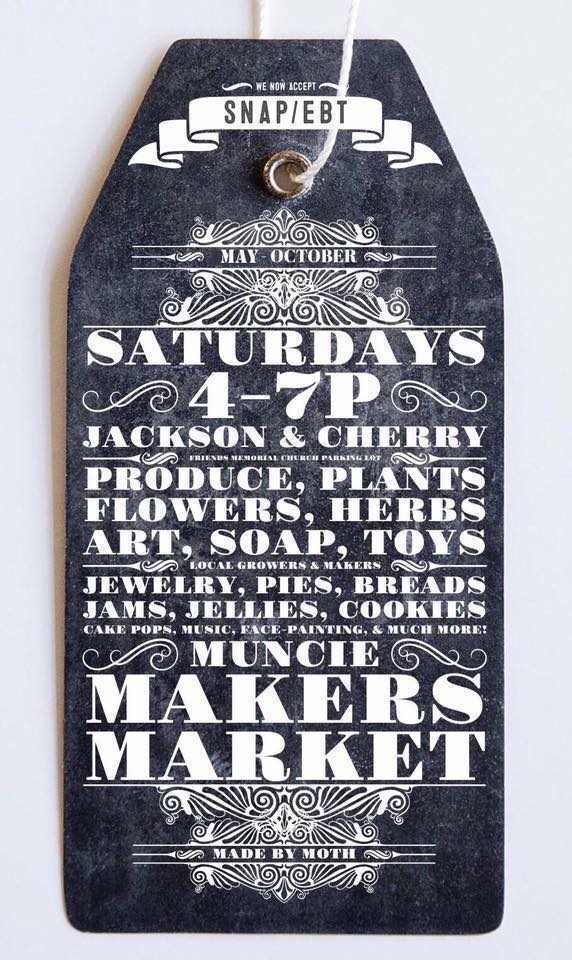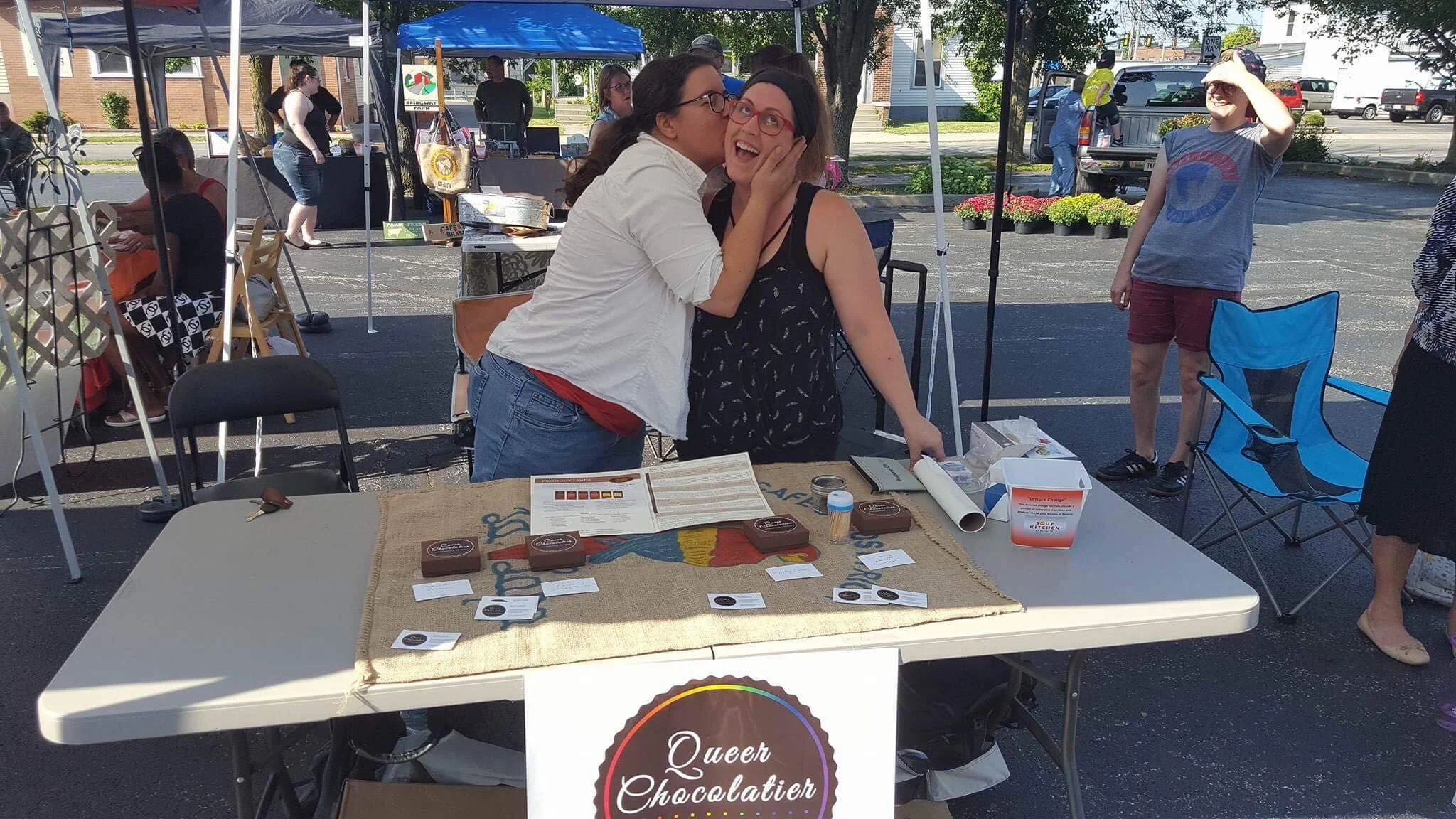Pride Critiques
As Pride has grown even more flashy and colorful, it still remains overwhelmingly white, racially-speaking. Recent Pride events across the nation also have increased their rapidly-growing corporate and police presence.
In part, this can be explained because of the organizing bodies that put the work into coordinating Pride events are also mostly white. Observing this isn't meant to be callous; it is a feat to put together such events but the amount of labor, including emotional labor, must be absolutely draining. For someone who is of lower income, or not able-bodied, or of an ethnic or racial minority, such labor may be simply too much to add to their own daily struggles of societal navigation.
In many instances, it is easy to see how today's version of Pride lacks resonance with queer and/or trans* persons of color as well as younger folx. QTPOC are more likely to have negative encounters with law enforcement than white queer and/or trans* folx. And, broadly speaking, our queer and/or trans* youth are savvy and critical of capitalism and conspicuous consumerism in a way that older generations are not. Both QTPOC and younger queer and trans* folx are at greater risk of economic, physical, and mental harm.
QTPOC
When the 2017 Columbus, Ohio Pride parade was blocked by Black Lives Matter protesters who were bringing to light the violence that QTPOC experience, some white organizers and participants were irate that the space was no longer made comfortable for them. Not only were they irate, they aggressively pursued charges against the Black Pride 4, thereby shining a harsh spotlight on the growing chasm between the middle-class white cis queers and QTPOC. There was a stark division on display during this parade and later at the Twin Cities parade, where protesters were quickly mobilized after the acquittal of the officer who killed Philando Castile; it is shameful that cities that have shown a lot of acceptance with queerness have not put in the labor to be as racially and ethnically inclusive.
It is especially shameful that this division is within our own house. Particularly as we owe Sylvia and Marsha a great debt for the roots of our month of celebration but we also demonstrate that we would likely kick them out of "our" space were they with us today. Pride organizers can and must do more to pass the mic and be inclusive.
Queer and/or Trans* Youth
A segment of our queer youth lack a connection with Pride because they haven't directly witnessed some of the ugly historic events firsthand. Possibly this could be a consequence of the success of society's acceptance of queer and trans* people. But I suspect our queer and trans* youth is sometimes leery of Pride because in part of the pervasive "Rainbow Marketing" corporatization and commercialization of the events.
For the longest time, queer and trans* folx weren't seen as market-worthy. More frequently, we were discriminated against before we even could show that some of us had money to spend; folx would have to remain in the closet when banking or purchasing a home or applying for work. Some still do since there are too many states that still have no legal protections for queer and/or trans* persons. When Pride parades are filled with corporate sponsors and employers touting their diverse workforce, some older queer and/or trans* people see this as progress because they remember a time that corporations willfully forgot that green ($$$) was a color in the rainbow.
However, the youth in our marginalized community are often crushed under the wheel of society's venomous "religious liberty" laws and are more concerned with finding a safe place to call home rather than which company is courting them for their disposable income. Our youth are still suffering from violent bullying, mental health issues, and lack of stability at home or work once they enter the job market. It is shallow to be excited over the next rainbow flavored or colored widget to buy when LGBTQIA2+ youth are 120% more likely to experience homelessness versus others.
These overlapping issues of race and class must be addressed in order for Pride to remain inclusive, relevant, and courageous.
Pride Praise
Pride is not without bright and shining moments that are praiseworthy. As an effort to listen to and address the concerns of QTPOC, some cities such as Minneapolis and Edmonton, Canada are adopting a policy that uniformed police officers are not allowed at the Pride events but police officers can instead participate out of uniform as members of the community. Whether this will fully tackle the dynamic between law enforcement and marginalized communities is not the question, but the steps taken in engaging with the community on their terms will hopefully bear fruit to show how we can reclaim our spaces.
Again, it cannot be overstated that Pride began as a riotous demonstration of visibility, dignity, and liberty.
As such, we cannot remain complacent in simply partying and shopping our way to full equality and justice in society. To that point, Anthony Niedwecki wrote in his piece in The Advocate earlier this month, "As we again feel that same boot of oppression crushing down on us and other minority communities, it is time for us to once again use our collective might in active defense of justice and equality." Pride, out of necessity, must be a political event and we need to do all we can collectively to engage one another so that we can more fully resist the oppression of dominant groups.
One way that folx are making a political statement is to throw Queerbomb events rather than participate in the mainstream Pride parades. Queerbomb Austin, for example, turns to crowdfunding instead of courting corporations for money to celebrate their queerness on their own terms, with promoting speakers such as a queer deaf community activist and sex workers' rights activists in 2018. In contrast, Pride events have arguably pursued palatability rather than authenticity.
I hope Pride can reclaim some of its defiant glory.
But perhaps out of some small measure of defiance, several communities throughout the country organized their first Pride events for 2018. Rural spaces and small towns often are challenging places for queer and/or trans* folx to be visible and free. When communities come together to launch their own Pride parade, without the flash and slick advertising found in LGBTQIA2+ meccas, the main thing on display is courage. Columbus, IN, home of the (in)famous Mike Pence, celebrated Pride in April of 2018 based on the hard work and organization of a bisexual high school student. Southern Illinois is also having its first Pride event this year, with much of its efforts on supporting the rural LGBTQ youth who struggle with isolation and rejection more than their counterparts throughout the country.
DIY Pride events aren't limited to small towns throwing their first celebration. The National Women's Soccer League recognizes Pride as a meaningful event for its players and fans, however, one team regularly holds out. The Washington Spirit owner, Bill Lynch, is a person who holds conservative political views and projects them regularly over his team and its operations, in ways that include not only dismissing Pride events but also in thwarting visiting team's star Megan Rapinoe's national anthem protest by unilaterally deciding to play the anthem while both soccer clubs were in their locker rooms. As a result, fans create their own Pride Night events as a way to push back against an owner of a club they feel doesn't represent their voice.
Still Proud
When queer and trans folx have adversity to face, we can galvanize to push back and boldly make a statement. But, when we have reached a certain level of "tolerance" or "acceptance" from society, we tend to forget that while some of our struggles have lessened, others in our family are still at risk of great harm.
As a businessqueer, I am proud of being visible but I recognize it isn't easy for all of us to be so. Founding Queer Chocolatier has given me a platform. For others, Pride may be their platform and for others still, there may not be a platform to be had.
For me, to remember the current challenges and risks faced by the most marginalized in our community is also to remember the recent and historical struggles our community faced. Our liberation must be for our most vulnerable.
We need to continue to remember our roots. We need to return to our basics. We need to return to unapologetic love. And I can do that while still being proud.
